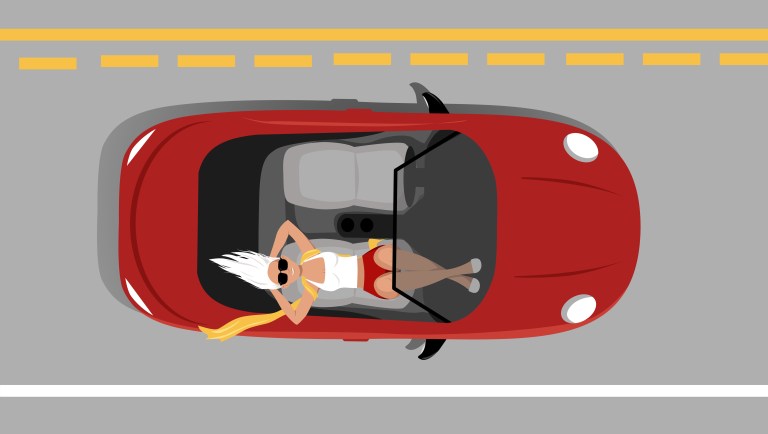Mercedes-Benz’s Connected Car Ambitions

While the self-driving car is rapidly shaping up to be everyone’s favorite next big thing in IoT (Internet of Things), it seems worth noting that the idea is somewhat less new than most of us imagine.
And we aren’t talking about the realms of science fiction that have long been hypothesizing the self-driving cars of the future. We’re talking about absolute reality: Mercedes Benz built a concept car that could steer, brake and accelerate all on its own. By 1994, they had reportedly perfected it well enough to drive it on French highways — but the idea was shelved because it seemed commercially unviable at the time.
But one generation’s pie-in-the-sky concept is the next generation’s next big thing — and these days all kinds of automobile and tech players are crowding the car market. Honda, Toyota, Ford, Google, Samsung, Volkswagen, Uber — the list goes on for a while. What variation of the self-driving car of the future are being taken on changes from company to company. Some players are looking to create more partially autonomous connected cars as opposed to the fully autonomous self-driving version. But these days very few people are writing the concept off as not commercially viable.
Which means Mercedes wants to get back in the game — and regain the edge it voluntarily surrendered a little over 25 years ago, when getting ahead of self-driving cars didn’t seem like it would ever be important.
But Dieter Zetsche, CEO of Mercedes parent company Daimler AG, is now working hard to get Mercedes’ automation efforts out of the back of the automation pack and up into poll position. In fact, experts and analysts are now noting that that 64-year-old Zetsche — whose contract runs out in a little over a year and half — may be working on the final contribution and potentially most impactful portion of his legacy at Mercedes.
“It’s very, very important to be one of the first with self-driving cars, because the technology is threatening to overturn carmakers’ core business,” said Jan Burgard, head of Beryll Strategy Advisors, a Munich-based automotive consulting firm. “To be among the first means to be in a much better position to assess the threat, and in particular shape future development.”
Mercedes is not in front — at present — but it is driving hard to get there. Two years ago, the world got a peek at the self-driving F 015 concept car and spent much of the time since pushing up time targets for the technology necessary to make self-driving cars happen faster. Because speed is definitely a factor when it comes to a fundamental change in the automotive world. Consulting firm Frost & Sullivan estimate that autonomous cars could be a market worth as much as $83 billion by 2025, which means the clock is ticking.
“Having a car drive by itself under certain conditions is, figuratively speaking, just around the corner,” said Zetsche, who noted that while weather and terrain are issues in some places, “getting around Madrid in a self-driving car under normal circumstances is a realistic scenario by the turn of the decade.”
And Zetsche is putting his development money where his mouth is. Since 2016, Mercedes has operated a skunkworks unit to focus wholly on electric cars, self-driving cars and reimagined uses for autonomous, like robo-taxis.
Plus Mercedes is interested in more than just their internal ideas about the autonomous auto’s future. They are also the proud parents of a tech accelerator that focuses solely on startups.
But will it be enough, given the competitiveness of the field and the fact that drivable competitors are already trickling into the market? Tesla, Inc. offers an Autopilot feature, which boasts “full self-driving capability at a safety level substantially greater than that of a human driver.” Mercedes, for all its work, has yet to set a target for when a fully robotic vehicle might be available to buy.
But Mercedes has managed to regain a lead — after losing in luxury car sales to BMW in 2005 and then spending the better part of 12 years clawing it back.
But that was a more traditional comeback against their historical rival. This is something quite different, and with players like Google, which Mercedes likely never imagined would be their direct competition.
But Mercedes is testing their autonomous cars every day in the California test track facility and remain unworried, because the race is young, according to Christian Weiss, the head of autonomous driving for Mercedes.
“The truth for any self-driving vehicle is on the street,” Weiss said during a demonstration that showed how the cars learn to act safely even with incomplete information.
And until the cars are out in the street, the race has not really begun yet.